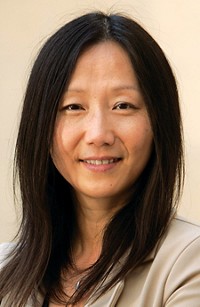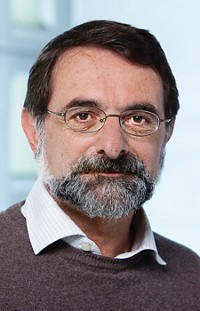Advertisement
Grab your lab coat. Let's get started
Welcome!
Welcome!
Create an account below to get 6 C&EN articles per month, receive newsletters and more - all free.
It seems this is your first time logging in online. Please enter the following information to continue.
As an ACS member you automatically get access to this site. All we need is few more details to create your reading experience.
Not you? Sign in with a different account.
Not you? Sign in with a different account.
ERROR 1
ERROR 1
ERROR 2
ERROR 2
ERROR 2
ERROR 2
ERROR 2
Password and Confirm password must match.
If you have an ACS member number, please enter it here so we can link this account to your membership. (optional)
ERROR 2
ACS values your privacy. By submitting your information, you are gaining access to C&EN and subscribing to our weekly newsletter. We use the information you provide to make your reading experience better, and we will never sell your data to third party members.
People
ACS Award in Organometallic Chemistry
Recipients are honored for contributions of major significance to chemistry
by Linda Wang
February 9, 2009
| A version of this story appeared in
Volume 87, Issue 6
Sponsored by Dow Chemical Co. Foundation
French theoretical organometallic chemist Odile Eisenstein knows the benefits of a good collaboration. In fact, her long-term partnerships with teams of experimental chemists in France, Spain, the U.K., and the U.S. have resulted in more than 250 publications.
“Odile took real problems from the work of leading inorganic and organometallic groups and in each case transformed exploration into understanding and prediction,” says Roald Hoffmann, a Nobel Laureate and Frank H. T. Rhodes Professor Emeritus of Humane Letters at Cornell University.
Eisenstein uses powerful computational tools to understand the structure, bonding, and function of organometallic compounds, leading to a better understanding of catalysis. She then interprets the results in a way that is accessible to both theoretical and experimental chemists. Her achievements include the prediction of nonoctahedral geometries for d0 ML6 species. She also was the first to postulate a proton-hydride interaction known as the dihydrogen bond, and she argued for a major role of steric effects in permitting agnostic CH bonds in a variety of ligand systems.
“In all her work she has collaborated with a series of experimental groups, maintaining a continuous contact with a given theme for a substantial period,” says collaborator Robert H. Crabtree, professor of chemistry at Yale University. “The importance and significance of her input is clearly shown by the loyalty of her collaborators.”
Eisenstein started as a theoretical organic chemist but became interested in organometallic compounds during a postdoc with Hoffmann at Cornell.
“From her initial work in organic chemistry, it was clear that Eisenstein possessed an intuitive feeling for what bothers experimentalists and a real desire to work together with them,” Hoffmann says.
Eisenstein received a B.S. in physical chemistry in 1971 and a Ph.D. in theoretical chemistry in 1977, both from the University of Paris-Sud, in France. She completed postdoctoral fellowships at the Swiss Federal Institute of Technology, Zurich, and at Cornell.
After her training, she took a job as an assistant professor at the University of Michigan, Ann Arbor, and worked there for two years before returning to France to take a position at the National Center for Scientific Research, first at Paris-Sud and then in Montpellier, where she is now a distinguished research professor.
She has held invited and honorary professorships at Indiana University, the University of Nottingham, York University, Texas A&M University, and the University of California, Berkeley.
Today, Eisenstein travels frequently to discuss research problems with her collaborators. At her lab at Montpellier, she continues to encourage her students and postdocs to develop their own network of collaborators. “They have to learn how to communicate outside of their own field because it’s not the same language for theoretical and experimental chemists,” she says. “We have to learn how to talk to each other.”
Eisenstein will present the award address before the Division of Inorganic Chemistry.






Join the conversation
Contact the reporter
Submit a Letter to the Editor for publication
Engage with us on Twitter